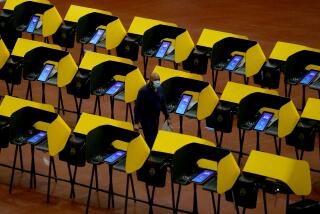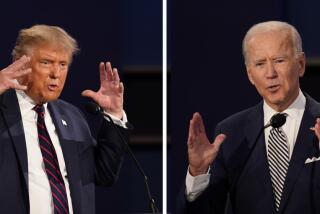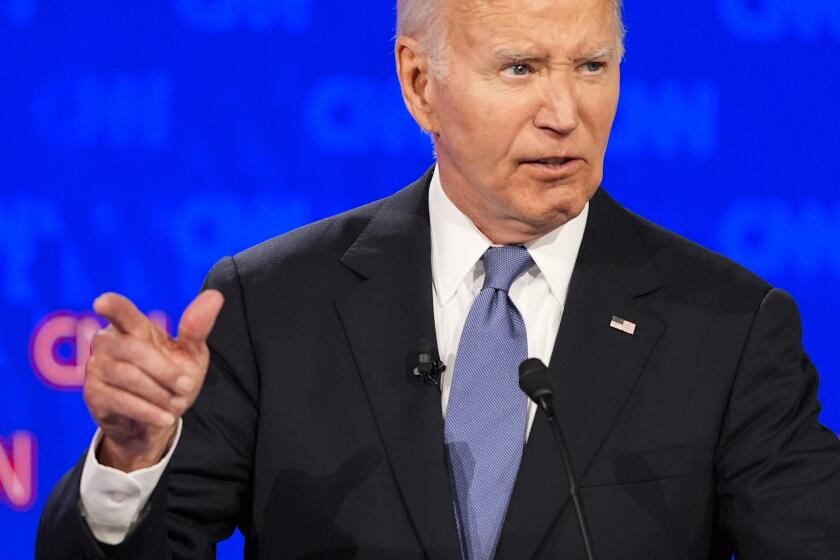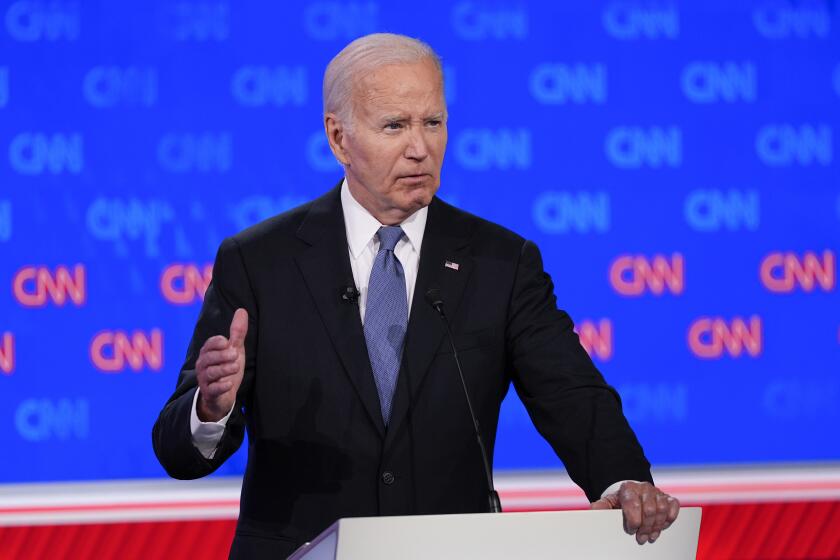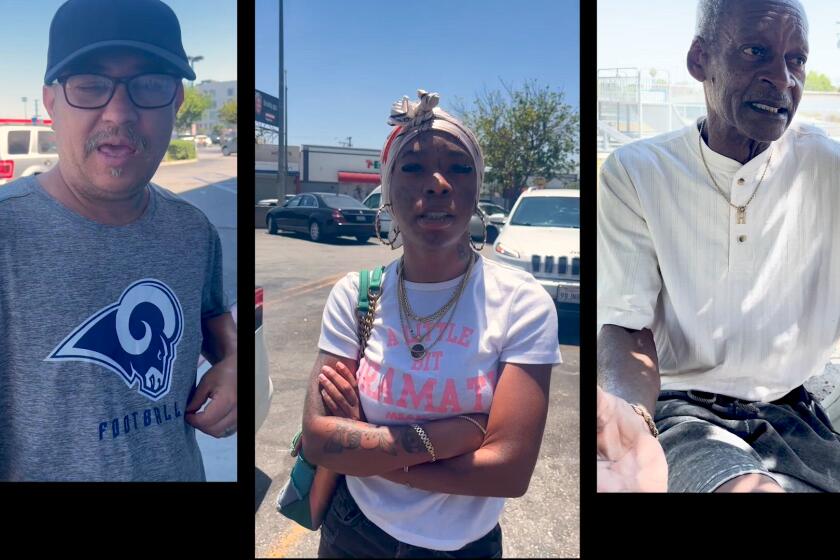The USC/L.A. Times poll saw what other surveys missed: A wave of Trump support

Here’s how the USC/Los Angeles Times Daybreak tracking poll is different from the others.
For most of the last four months, the USC/L.A. Times Daybreak tracking poll has been the great outlier of the 2016 campaign -- consistently showing a better result for Donald Trump than other surveys did.
In light of Tuesday’s election returns, the poll now looks like the only major survey to see the wave coming.
Most of the summer and fall, the poll’s results have been about 6 percentage points more favorable to the Republican than the polling averages. As of Tuesday morning, the poll’s final forecast for the election showed Trump leading by a little over 3 points, 46.8% to 43.6%.
Election Day 2016: Live updates »
The poll’s findings caused dismay — even outrage — among some readers, especially Democrats, who have denounced it and often criticized The Times for running it.
But just as four years ago the poll was one of the few that did not underestimate President Obama’s support, it seems as though it may have been on its own in not underestimating Trump’s.
Although the final popular vote margin won’t be known for days as late votes are counted in California and other states, it’s clear that the poll was at least as accurate as the majority of surveys that found Clinton ahead by 4 or 5 points.
The biggest difference between the Daybreak poll and most other surveys involves what pollsters refer to as weighting, the process of adjusting a poll’s data to make sure it properly represents the diversity of the population. The Daybreak poll uses a weighting plan that is more complicated than most other surveys — perhaps too complex, critics said.
As Ernie Tedeschi, a Washington-based economist and former Treasury Department official, has shown, if you take the Daybreak poll’s data — which USC made available to the public — and weight it more in line with the usual system pollsters use, you get results that largely match the polling averages.
But as Sean Trende, the political analyst at Real Clear Politics, wrote of the Daybreak poll several weeks ago, “truth is not decided by committee.” The fact that the Daybreak poll was weighted differently doesn’t mean that it was weighted incorrectly, it just means that it is different.
Some of the worst failures of polling have come about because pollsters, whether deliberately or not, converged on a single view of an election, in what is often referred to as “herding.”
With all the challenges that polling faces, it’s important to test different methods and approaches to surveying public opinion. Some tests will work, others won’t, but the only way to know is to try.
In addition, regardless of which poll was right about the standing of the two candidates, the Daybreak poll, as Tedeschi and others have found, has produced a lot of useful data.
The poll told us in August, for example, that Trump’s chance of winning depended on mobilizing white voters who had sat out the 2012 election — something that he clearly has succeeded in doing in several key states.
Because the poll represented the views of those voters more than other surveys, it “presents something of a best-case scenario for Trump,” we wrote then, noting several reasons why Trump might not be able to mobilize the voters he needed.
The poll also told us about how much Trump’s strength depended on the votes of men, and about his edge earlier this fall among voters who were most certain about their vote.
One other thing the poll told us might bear on why Clinton has performed so much worse on election day than many preelection polls had suggested.
The poll asked respondents whether they were comfortable talking to people about their vote. The survey found that Trump supporters reported themselves as being slightly more comfortable than Clinton voters in talking to family members and acquaintances about their choice.
But Trump voters were notably less comfortable about telling a telephone pollster about their vote. Voters who backed a third-party candidate were even less comfortable responding to a poll. Women who said they backed Trump were particularly less likely to say they would be comfortable talking to a pollster about their vote.
That doesn’t necessarily mean that a poll conducted online, the way the Daybreak poll is, necessarily will be more accurate than polls conducted by phone. But it is yet another indication that polling needs more, diverse ways to look at public opinion, not fewer.
For more on Politics and Policy, follow me @DavidLauter
ALSO
Our final map has Clinton winning with 352 electoral votes. Compare your picks with ours.
This is America’s state of mind on election day
Election day 2016 live updates
UPDATES:
9:15 pm.: This article was updated to reflect the election day vote count.
10:49 a.m.: This article was updated with an updated version of Ernie Tedeschi’s graph of his re-weighting of the poll.
The article was originally published at 7:10 a.m.
More to Read
Get the L.A. Times Politics newsletter
Deeply reported insights into legislation, politics and policy from Sacramento, Washington and beyond. In your inbox three times per week.
You may occasionally receive promotional content from the Los Angeles Times.
